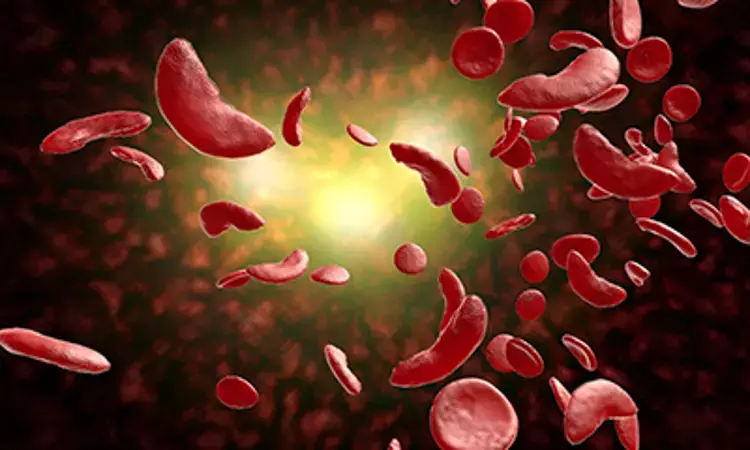- Home
- Medical news & Guidelines
- Anesthesiology
- Cardiology and CTVS
- Critical Care
- Dentistry
- Dermatology
- Diabetes and Endocrinology
- ENT
- Gastroenterology
- Medicine
- Nephrology
- Neurology
- Obstretics-Gynaecology
- Oncology
- Ophthalmology
- Orthopaedics
- Pediatrics-Neonatology
- Psychiatry
- Pulmonology
- Radiology
- Surgery
- Urology
- Laboratory Medicine
- Diet
- Nursing
- Paramedical
- Physiotherapy
- Health news
- Fact Check
- Bone Health Fact Check
- Brain Health Fact Check
- Cancer Related Fact Check
- Child Care Fact Check
- Dental and oral health fact check
- Diabetes and metabolic health fact check
- Diet and Nutrition Fact Check
- Eye and ENT Care Fact Check
- Fitness fact check
- Gut health fact check
- Heart health fact check
- Kidney health fact check
- Medical education fact check
- Men's health fact check
- Respiratory fact check
- Skin and hair care fact check
- Vaccine and Immunization fact check
- Women's health fact check
- AYUSH
- State News
- Andaman and Nicobar Islands
- Andhra Pradesh
- Arunachal Pradesh
- Assam
- Bihar
- Chandigarh
- Chattisgarh
- Dadra and Nagar Haveli
- Daman and Diu
- Delhi
- Goa
- Gujarat
- Haryana
- Himachal Pradesh
- Jammu & Kashmir
- Jharkhand
- Karnataka
- Kerala
- Ladakh
- Lakshadweep
- Madhya Pradesh
- Maharashtra
- Manipur
- Meghalaya
- Mizoram
- Nagaland
- Odisha
- Puducherry
- Punjab
- Rajasthan
- Sikkim
- Tamil Nadu
- Telangana
- Tripura
- Uttar Pradesh
- Uttrakhand
- West Bengal
- Medical Education
- Industry
Vitamin D Deficiency Might Aggravate Pain For Sickle Cell Patients

Individuals with sickle cell disease (SCD) are at increased risk of vitamin D deficiency due to the darkening of the skin, decreased physical activity, poor nutrition, and renal dysfunction. A recent study suggests that low vitamin D levels increased the frequency of painful events leading to hospital visits, indicating a high prevalence of self-reported pain and pain disorders. The study findings were presented at the 2021 American Society of Hematology (ASH) Annual Meeting & Exposition.
Previous studies demonstrated the link between Vitamin D deficiency in SCD and increased frequency of acute pain events and higher opioid use. However, the impact of vitamin D deficiency on pain-related, patient-reported outcomes has not been described. In addition, high dose vitamin D supplementation has been linked to fewer pain days and higher physical activity scores for patients with chronic pain. Therefore, Dr Latika Puri and her team conducted a study to evaluate the relationship between vitamin D levels, acute health care utilization and self-reported pain among children with SCD. They further evaluated whether vitamin D deficiency is associated with increased health care utilization for pain and patient-reported outcomes for pain.
The researchers included a total of 799 pediatric patients with sickle cell disease from the Sickle Cell Clinical Research and Intervention Program (SCCRIP) at St. Jude Children's Research Hospital. They extracted demographic, clinical, and laboratory data from the SCCRIP database and analyzed prospective pain events leading to hospital visits for patients. They further analyzed pain-related hospitalizations in two ways: the number of pain-related hospitalizations within 2 years before and after vitamin D measurement in a cross-sectional design and longitudinally. They used the Pediatric Quality of Life Inventory™ Sickle Cell Disease Module (PedsQL™ SCD) to measure pain and pain interference using 1) Pain and Hurt and 2) Pain Impact scales. Assessments include a Likert response scale and, items are reverse-scored and transformed to a 0-100 scale where higher scores indicate the better health-related quality of life in that scale.
Key findings of the study:
- At baseline, the researchers noted that the range of vitamin D measurement for the entire cohort was 8.7 (4.7), (0.8-18 years) and, the mean (SD) initial vitamin D level for the entire cohort was 19.0 (9.4) ng/dl.
- Within two years of the first vitamin D measurement, they found that the mean number of pain-related hospitalizations was higher in the vitamin D deficient group as compared to the non-deficient group [0.81(1.97) vs 0.66 (1.2)].
- Upon longitudinal data analysis, they found that the vitamin D deficiency was associated with an increased number of pain-related hospitalizations, after adjusting for covariates such as SCD genotype, sex, age, hydroxyurea use and interaction between age and hydroxyurea use.
- They further noted that the mean scores for Pain and Hurt in vitamin D deficient compared to the non-deficient group were [74.5.7(18.2) versus 83.5(15.6)], while mean scores for Pain Impact in vitamin D deficient group as compared to the non-deficient group were [(66.7 (22.7) versus 75.5 (22.3)].
The authors concluded, "Results indicated that low vitamin D levels predicted higher frequency of painful events leading to a hospital visit and were associated with higher prevalence of self-reported pain and pain interference. Further studies evaluating mechanisms by which vitamin D influences sickle cell pain are warranted and larger controlled trials can help evaluate the therapeutic efficacy of vitamin D for sickle cell pain."
For further information:
Latika Puri, et al., Vitamin D Levels: Associations with Acute Pain Events and Self-Reported Pain in Children with Sickle Cell Disease, ASH Annual Meeting & Exposition, 3089.
Medical Dialogues Bureau consists of a team of passionate medical/scientific writers, led by doctors and healthcare researchers. Our team efforts to bring you updated and timely news about the important happenings of the medical and healthcare sector. Our editorial team can be reached at editorial@medicaldialogues.in.
Dr Kamal Kant Kohli-MBBS, DTCD- a chest specialist with more than 30 years of practice and a flair for writing clinical articles, Dr Kamal Kant Kohli joined Medical Dialogues as a Chief Editor of Medical News. Besides writing articles, as an editor, he proofreads and verifies all the medical content published on Medical Dialogues including those coming from journals, studies,medical conferences,guidelines etc. Email: drkohli@medicaldialogues.in. Contact no. 011-43720751


